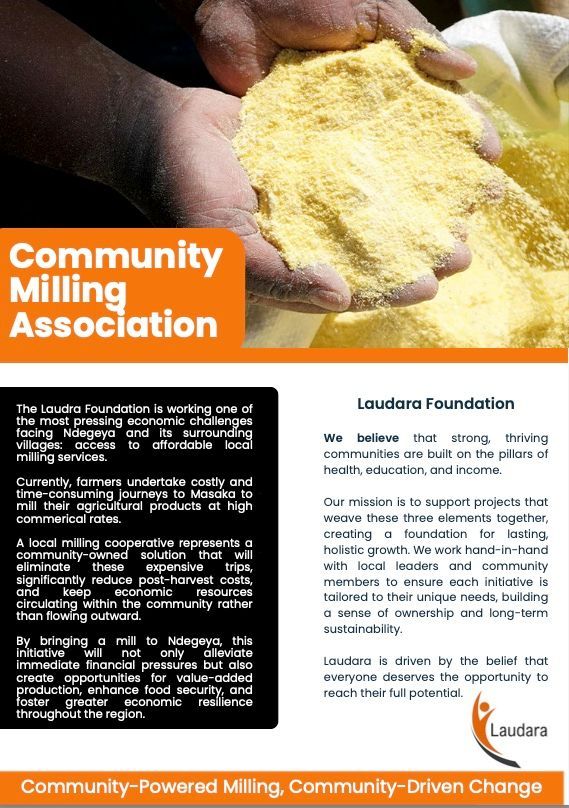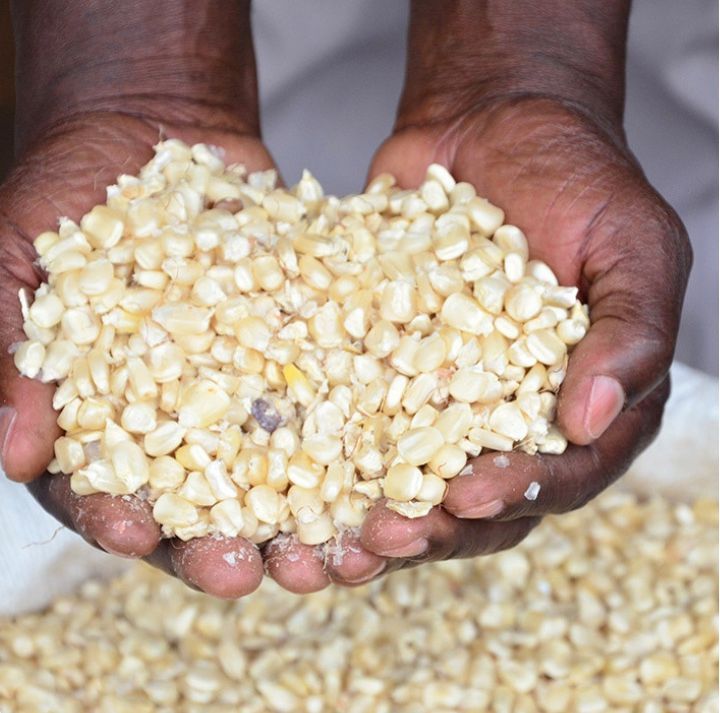Our Solution: A Community-Owned Milling Association
The Laudara Foundation is proud to introduce the Ndegeya Community Milling Association—a project designed to turn this challenge into an opportunity. By establishing an association, we ensure the mill is owned and operated by the community itself. This means that all members, especially local farmers, will have a direct say in how the business is run and will share in the profits and benefits.






